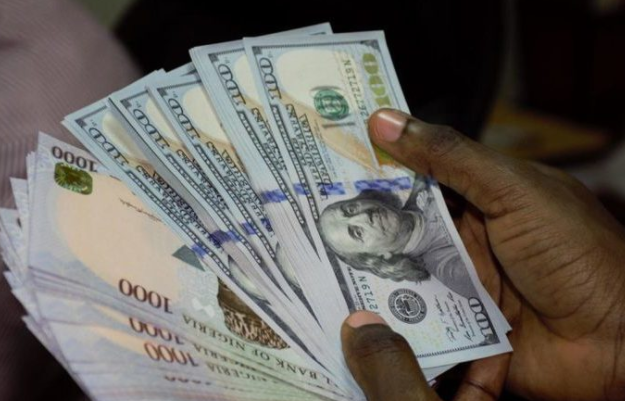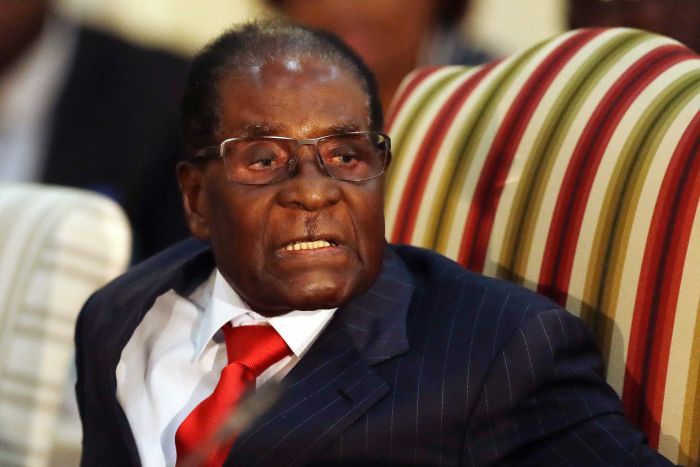The Nigerian currency, Naira, over the weekend closed at 367 to the US dollar against 369 to 370 exchanged a week ago, ending the trading week on a positive note both at the official and unofficial foreign exchange markets.
This is just as forex traders anticipate further gains this week, with high expectations that the Central Bank of Nigeria (CBN) will continue its weekly intervention in the forex market, due to the current level of the nation’s external reserves.
The local currency, on Tuesday, had rebounded to gaining streak, when it appreciated for the first time within the week, to close at 367 to the dollar against 370 sold on the first trading in the week under review.
It, however, stabilized the Tuesday rate on Wednesday, but relapsed on Thursday to 368 before closing the week on Friday at 367 to the dollar at the parallel market.
The Naira fell against the pound and euro, with the week closing rate of 488 and 437 respectively, while compared with 436 and 485, traded earlier in the week.
Although, it rebounded slightly against the Pound sterling to close at 487 on Thursday, after seen traded at 488 and 436 on Wednesday, but were sold at 485 and 436 on Tuesday at the parallel segment of the forex market, even though the euro at 436 was stronger than 437 exchanged on Monday.
At the official foreign exchange market, the naira maintained the 305.90 per dollar traded, which was slightly better than Monday rate of 305.95 sold on about a week ago.
The local currency, at the official foreign exchange market, closed at 305.95 a week ago, but appreciated to 305.90on Tuesday but steadied at 305.90 on Wednesday, before moving up to 305.85 on Thursday and sustained the gains recorded during the week on Friday.
Although, the gains were linked to the injection of $545 million by the apex bank a day earlier, as the retail Secondary Market Intervention Sales (SMIS) received the largest intervention of $285 million.
The banks, also sustained its intervention in the various sectors of the inter-bank Foreign Exchange market with the injection of $545 million.
Giving a breakdown of the Bank’s latest forex injection, its Acting Director, Corporate Communications, Isaac Okorafor, revealed that the retail Secondary Market Intervention Sales (SMIS) received the largest intervention of $285 million.
Other components of the released figures include the $100 million offered for wholesale SMIS, $90 million for Small and Medium Enterprises (SMEs) window and $70 million for invisibles such as Basic Travel Allowances, tuition fees and medical payments.
The CBN has also reiterated its stance towards intervening at the Interbank Foreign Exchange market. It warned speculators against “nefarious activities’’, stating that checks were in place to guard against unlawful practices.
Okorafor, said the success recorded at the I& E FX Window was an indication of the appreciable level of confidence in the foreign exchange management by foreign investors and autonomous suppliers of foreign exchange to the market.
He said that the apex bank had so far met all the legitimate forex demands from genuine customers, adding that the CBN would ensure sustainable forex liquidity and transparency to enable as many customers as possible get access to the foreign exchange they genuinely demand.
Meanwhile, the nation’s external reserve is currently sit at $33billion, which has more positioned the CBN to continue to intervene in the foreign exchange market.
This however, means positive news for Nigeria from the oil markets where crude prices touched a five-month high, with Brent, the benchmark crude, up one per cent at $55.72 a barrel, after a session high of $55.99, its highest since April 13.
it is worthy of note that the accretion in reserves, derived mainly from the proceeds of crude oil earnings, represents an increase by $7 billion, compared with the $26 billion at the end of the year.
The Nigerian economy, which recently exited from a debilitating recession, with data from the National Bureau of Statistics (NBS) showing that the economy expanded by 0.55 per cent in the second quarter (Q2) of 2017, was driven mainly by the performance of the oil and three other sectors.
In the second quarter, the oil sector grew significantly by 17.04 percentage points from -15.40 per cent recorded in Q1 2017 to 1.64 per cent, reflecting the relative peace in the Niger Delta, increased oil output from the region and increase in oil prices.
Okorafor, however, maintained that authorised dealers had enough funds to meet the forex needs of customers and urged all to adhere to the extant guidelines on the sale of forex in the Nigerian forex market.
He advised those in genuine need of forex to continue to approach their respective banks for purchase, adding that the CBN remained optimistic that the Nigerian currency will fare strongly against other convertible currencies.
On the convergence target of the Bank, he said the goal would be attained if all stakeholders played by the rules.




